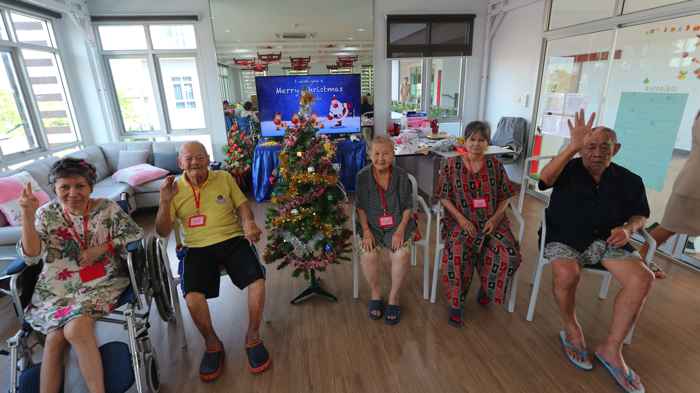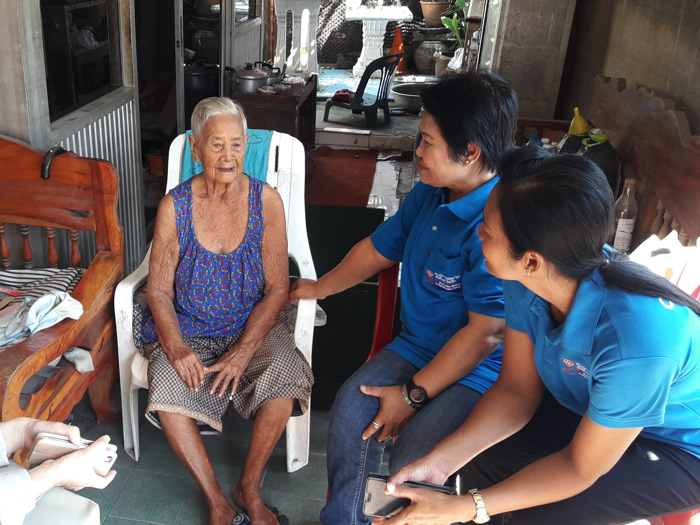- Project Leader : Watanabe Osamu (Teikyo University of Sciences, Faculty of Medical Sciences)
- Collaborators : Jiraporn Chompikul (Mahidol University, Asean Institute for Health Development)
- : Nuanpan Pimpisan (Nakhonratchasima hospital)
- : Onchuda Kumporn (Siriraj Hospital)
- : Kawamoti Masato (Osaka University, Human Sciences)
- : Kimura Yumi (Osaka University, Graduate School of Human Sciences)
- : Sakamoto Ryota (Kyoto University, Center for Southeast Asia Studies)
- : Kwanchit Sasiwongsaroj (Mahidol University, Research Institute for Languages and Cultures of Asia)
- : Ishimoto Yasuko (Kawasaki University of Medical Welfare, Faculty of Medical Technology)
Outline of Research
Having experienced a “compressed modernization” period of rapid development during the 1980s, Thailand’s overall national system has struggled to catch up to changes in economic, political, and cultural fields. As such, Thailand is now experiencing a declining birthrate and becoming an aging society without having had sufficient time to accumulate wealth and build up a welfare state. Therefore, the Thai government relies on the principle of complementarity for family care, and family caregivers assume all responsibility for primary elder care.
This study is a qualitative investigation of the feelings, burdens, and experiences of primary caregivers in northeast Thailand. We will also uncover commonalities and peculiarities between Japan and Thailand in order to contribute to the formation of support policies that may be applied to both countries.
Description
In Japan, where care insurance schemes are limited and the burden on family caregivers is becoming more serious, increasing attention is paid to how to utilize informal care as a substitute for or supplement to formal care. Therefore, this study focuses on the northeastern part of Thailand, where community members help each other as a form of mutual informal care. We will observe the relationship between informal actors and care recipients to identify the challenges that caregivers face.
The study aims to gather knowledge that can contribute to constructing a support policy for family caregivers in Japan. Specifically, it will 1) map the roles of various care actors and clarify the various aspects of elder care relationships using a qualitative survey, 2) clarify the feelings and burdens that family caregivers experience, 3) investigate the commonalities and peculiarities between Japan and Thailand based on the actual conditions and changes experienced by caregivers of the elderly, and 4) develop detailed recommendations for effective support policies for both countries.
The significance of this study is to examine the previously understudied expansion and dynamics of informal care dynamics. We will share research findings with individual care actors and Community Health Centers, providing specific advice for support measures. In addition, we will produce at least one academic paper related to this study and make one presentation at an academic conference in order to share findings more broadly. From the knowledge obtained, we will provide recommendations for caregiver support policies in both Thailand and Japan.


